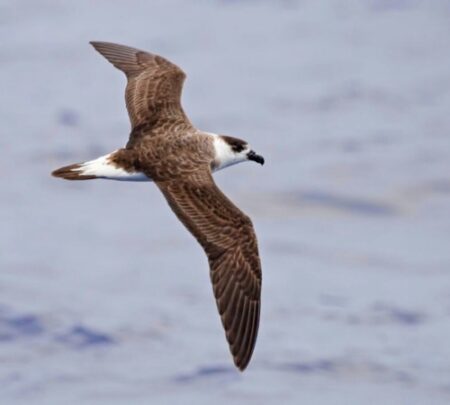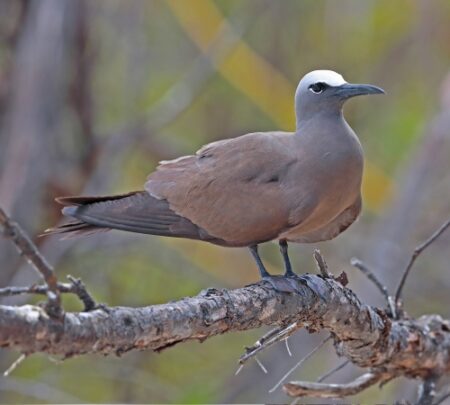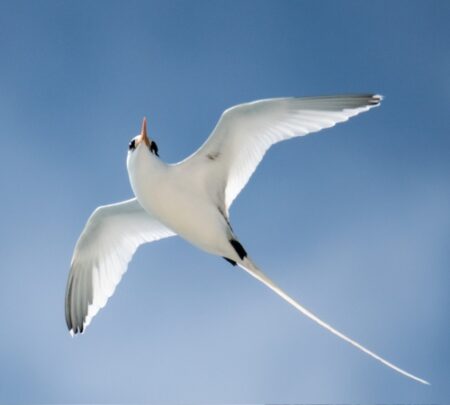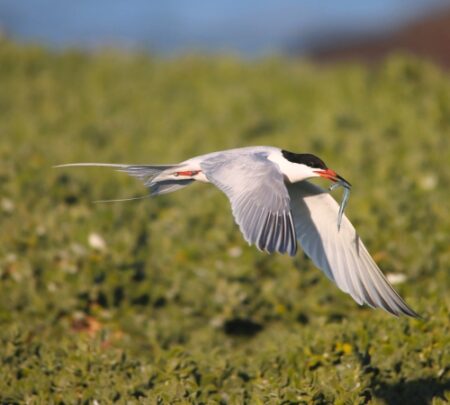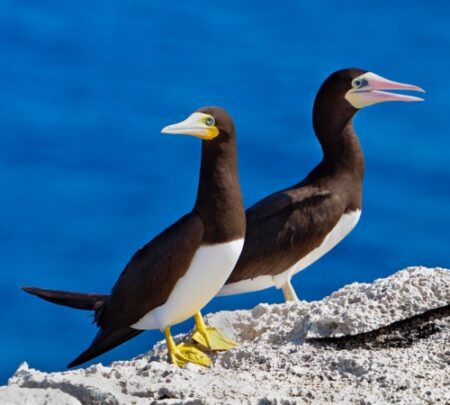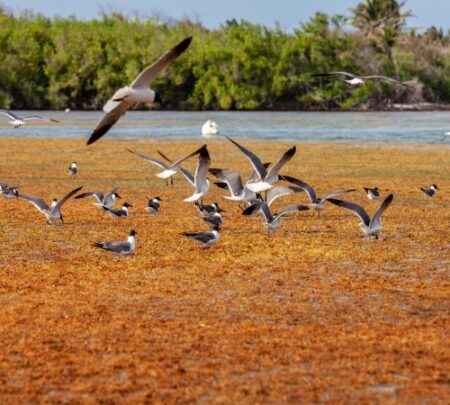Seabird Resources
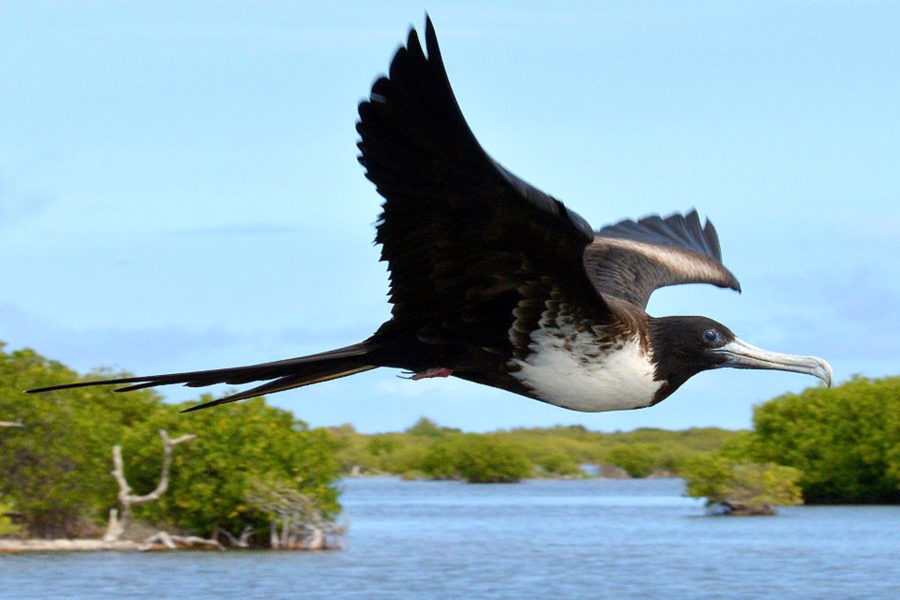
Books
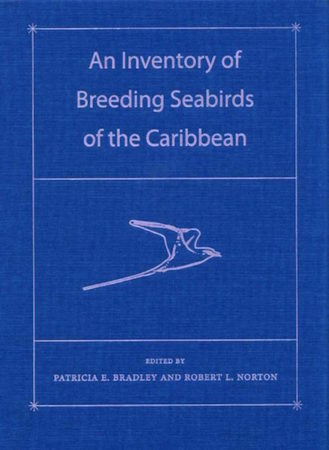 Breeding Seabirds of the Caribbean; edited by P.E. Bradley and R.L. Norton (2009). This book is an island-by-island inventory of Caribbean seabirds, including colony locations, population estimates, threats to seabirds, and research and conservation actions and needs. The book is currently ‘out of print’, but BirdsCaribbean has an inventory of hard copies that are available for sale online at a greatly reduced price.
Breeding Seabirds of the Caribbean; edited by P.E. Bradley and R.L. Norton (2009). This book is an island-by-island inventory of Caribbean seabirds, including colony locations, population estimates, threats to seabirds, and research and conservation actions and needs. The book is currently ‘out of print’, but BirdsCaribbean has an inventory of hard copies that are available for sale online at a greatly reduced price.
Status and Conservation of West Indian Seabirds; edited by B.A. Schreiber and D. Lee (2000). This book provides information on breeding seabird species of the Caribbean, and has dedicated chapters on associated conservation needs and tools. A classic reference that has received excellent reviews. A PDF can be downloaded here.
Seabird Breeding Atlas of the Lesser Antilles; K. Lowrie, D. Lowrie, and N. Collier (2012). This book provides species profiles and distribution ranges of seabirds in the Lesser Antilles, and outlines methodologies for monitoring these populations. The Atlas gives information on islands with breeding seabirds, outlines the nations supporting globally and regionally important populations, and discusses the significance of the Caribbean for seabirds. For more information visit Environmental Protection In the Caribbean’s (EPIC).
Important Bird Areas in the Caribbean: Key Sites for Conservation; edited by D.C. Wege and Anadon-Irizarry V. (2008). This book provides information on the network of designated Important Bird and Biodiversity Areas (IBAs) in the Caribbean. This IBA program in the Caribbean started in early 2001, and has continued following the publication of this inventory in 2008. For more information visit Birdlife International.
Databases and Repositories
The West Indian Breeding Seabird Atlas This Atlas provides a comprehensive overview of breeding seabirds in the Caribbean. While this resource has not been updated in recent years, our working group hope to continue with this task in the future. Therefore, if you have observed breeding seabirds in the region or have updated information please visit www.wicbirds.net, or contact Atlas creator and manager Will Mackin.
Important Bird and Biodiversity Area (IBA) Program in the Caribbean Birdlife International’s IBA program aims to identify and protect a network of sites crucial to the long-term viability of naturally occurring bird populations across their distribution ranges (see Lascelles et al. 2016). Many seabird populations that inhabit the Caribbean meet the criteria for IBA designation (see links in Active Seabird Projects). The Important Bird Areas of the Caribbean Inventory presents detailed information on identified IBAs for seabirds in this region.
OBIS-SEAMAP (Ocean Biogeographic Information System – Spatial Ecological Analysis of Megavertebrate Populations) This global program, hosted at Duke University, seeks to organize seabird, marine mammal and sea turtle spatial data to advance conservation and collaboration. In the Caribbean, Environmental Protection in the Caribbean (EPIC) (a contributor to OBIS-SEAMAP) have now updated the ‘Seabird Breeding Atlas of the Lesser Antilles’ based on standardized colony surveys undertaken between 2001–2010 (see epicislands or seamap for information).
Movebank Movebank is a free, online database of animal tracking data hosted by the Max Planck Institute of Animal Behaviour, which helps animal tracking researchers to manage, share, protect, analyse and archive their data. Links to many existing tracking datasets in the Caribbean, and the groups that hold them, can be found through this repository.
2023 Caribbean Seabird Census. The Seabird Working Group intends to reference the data collected during the Caribbean Regional Seabird Census into the Global Biodiversity Information Facility (GBIF). GBIF is a free online, publicly available open-source repository of datasets that will ensure that you remain the full owner of your datasets. You can find our standardized reporting datasheets for the 2023 Caribbean Seabird Census in our shared Google Drive folder: https://drive.google.com/drive/folders/1PVU7hdPy0gjotO2lA86EMmDPioqjLRUi
Tools for Managing Invasive Species
Invasive Species are a major threat to seabirds in the Caribbean, as they are worldwide. The Caribbean has dedicated Invasive Species Working Groups that aim to support and share information amongst those working to address this threat (see the BirdsCaribbean Invasive Species Working Group and Caribbean Invasive Species Working Group pages).
Monitoring Manuals/ Handbooks
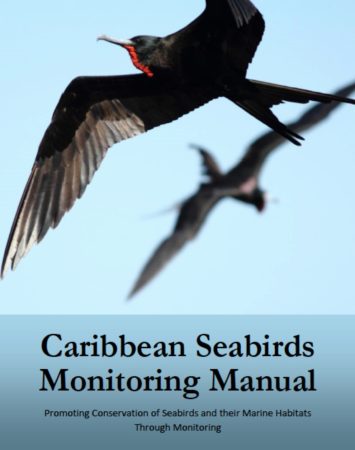 Haynes-Sutton A. et al. (2018) Caribbean Seabirds Monitoring Manual: Promoting Conservation of Seabirds and their Marine Habitats through Monitoring. BirdsCaribbean, 85 pp. (PDF: English, Spanish and French)
Haynes-Sutton A. et al. (2018) Caribbean Seabirds Monitoring Manual: Promoting Conservation of Seabirds and their Marine Habitats through Monitoring. BirdsCaribbean, 85 pp. (PDF: English, Spanish and French)
Steinkamp M. et al. (2003) Breeding Season Population Census Techniques for Seabirds and Colonial Waterbirds Throughout North America. Unpublished report, 81 pp. (PDF).
Chardine J.W. (2002) Basic guidelines for setting up a breeding seabird monitoring program for Caribbean countries. Unpublished report, 17 pp. (PDF).
Reports and Publications of Interest
Final NFWF Seabird Support Project report (PDF): This report was an output of a three-year project, awarded to BirdsCaribbean and funded by the US National Fish and Wildlife Foundation, which aimed to raise capacity for seabird conservation in the Caribbean.
Coffey J. & Collier N. (2020) Community-based Conservation Management Plan for the Seabirds of the Transboundary Grenadines Archipelago. Environmental Protection in the Caribbean (EPIC), 66 pp. (PDF).
See https://epicislands.org/publications.html for a list of other publications highlighting EPIC’s seabird activities.
Local organisations and Government Departments throughout UK Overseas Territories, in collaboration with Universities in the UK, are involved in a number of seabird projects funded by the UK Government’s Darwin Initiative scheme. Past and present reports from this work can be found on the Darwin Initiative website.
Colony Management & Monitoring
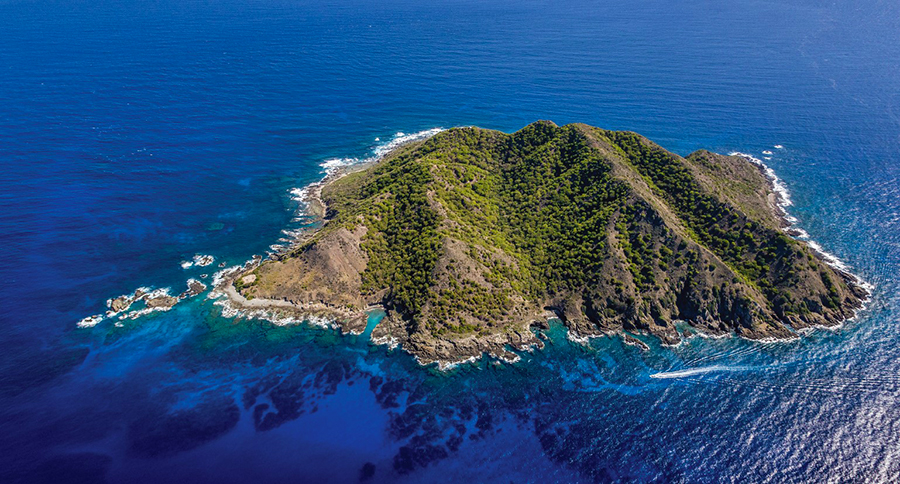
- Desecheo Island: a new home for Audubon’s Shearwaters Ramos-Vázquez, et al. 2024
- Status of seabirds, habitat, and invasive species in the Cordillera Reef Nature Reserve, Puerto Rico – Ramos-Vázquez, et al. 2021
- Seabird surveys on Dog Island, Anguilla, following eradication of black rats find a globally important population of Red-billed Tropicbirds (Phaethon aethereus) – Bright, et al. 2014
- Status and conservation of the Magnificent Frigatebird (Fregata magnificens) on Barbuda, West Indies – Kushlan J. A . 2009
- Persistence of Audubon’s Shearwater (Puffinus lherminieri) and Bridled Tern (Onychoprion anaethetus) in cave breeding refugia on Mona Island, Puerto Rico – Figuerola-Hernández, et al. 2021
- Novedades sobre la reproducción de dos especies de aves marinas poco comunes en Cuba – García-Quintas, et al. 2020
- Conservation opportunities for tern species at two Ramsar sites on Bonaire, Caribbean Netherlands – Simal, et al. 2022
- Breeding Biology and Diet of Least Terns (Sternula antillarum) in Southwest Puerto Rico: New Insights on Conservation Needs – Ramos-Vázquez, et al. 2024
- Status and Reproduction of the Caribbean Brown Pelican subpopulation in northwestern Puerto Rico – Quiñones-Pérez, et al. 2024
Foraging Ecology, Diet & Prey
- Reproductive Success and Chicks Diet of the Least Tern (Sternula antillarum) in the South-southwest of Puerto Rico – Ramos-Vázquez, et al. 2023 (MS thesis)
Seabird Tracking
- First satellite tracks of the Endangered black-capped petrel – Jodice, et al. 2015
Disease & Threats
- A survey of Grenadians on seabird harvest in the Grenada Grenadines – Smart, et. al. 2020
- Introduced mammals threaten the Grenadines transboundary tropical seabird hotspot – Coffey & Collier, 2021
- Marine litter incorporation into nest construction and entanglement of Brown Noddies (Anous stolidus) in the Grenadines, West Indies – Coffey, 2022
- First Documented Predation Event on White-tailed Tropicbird, Phaeton lepturus, by the Puerto Rican Boa, Chilabothrus inornatus, In Puerto Rico – Morales-Pérez, 2023
Conservation
- Report from the symposium “ecology and conservation of Caribbean seabirds” and the round-table discussion “next steps in Caribbean seabird conservation” – Bradley & Wheeler, 2024
Seabird Population and Trends
- Seabird breeding atlas of the Lesser Antilles – (Book Review) – Lowrie, et al. 2012
- Current status and 21st century population trends of breeding seabirds in the U.S. and British Virgin Islands – Byerly, et al. 2023
- Searches for seabird breeding colonies in the Lesser Antilles – Collier, et al. 2002
- Seabird surveys of globally important populations in the British Virgin Islands – Zaluski, et al 2018
- Abundance and distribution of Roseate Terns (Sterna dougallii) in the Virgin Islands – Soanes, et al. 2020
- Brown Boobies (Sula leucogaster) roosting at Washington-Slagbaai National Park, Bonaire, Caribbean Netherlands – Simal, et al. 2020
- Reports from regional representatives: The Larid seabird breeding populations of the San Nicolas bay cays, Aruba – De Kort, 1995
- Seabird densities at sea in Saint Vincent and the Grenadines, with comments on their historic and current potential breeding status – Hayes, 2002
- Monito Island most recent seabird surveys – Arocho-Hernández, et al. 2022
Workshops and Webinars
Species Hour
Caribbean Seabird Census
- #1 Caribbean Seabird Identification
- #2 Basic Concepts in Seabird Monitoring and Census Design
- #3 Field Methods for Seabird Surveys
- #4 Seabird Acoustic Monitoring
- #5 Aerial Survey Methods for Monitoring Seabird Populations
- #6 Data Collection, Management and Storage
Updates from the First-ever Caribbean-wide Seabird Census
Public Education Tools
Save Our Seabirds posters—Available in English and Spanish
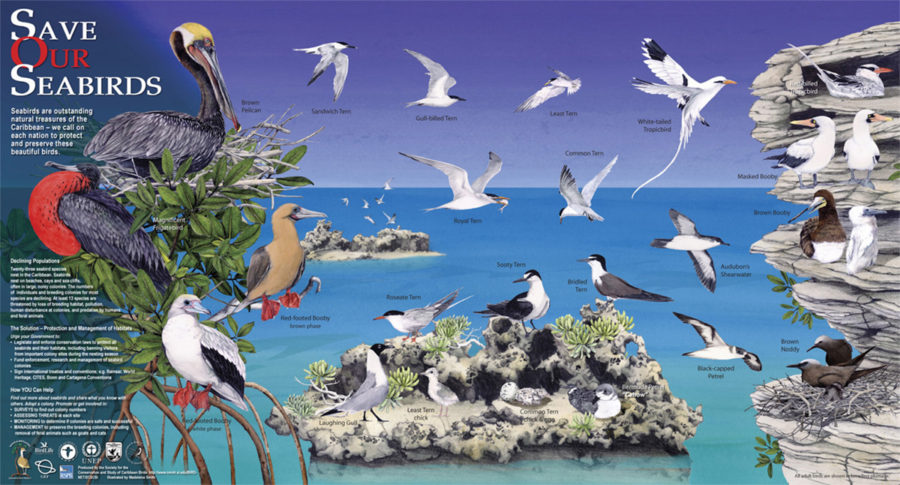
Seabirds of the Caribbean Identification Cards—sturdy waterproof cards ideal for use in the field for monitoring and education have been printed in English and French, and Spanish versions for Cuba, Puerto Rico and the Dominican Republic. There is also a version for Bermuda. 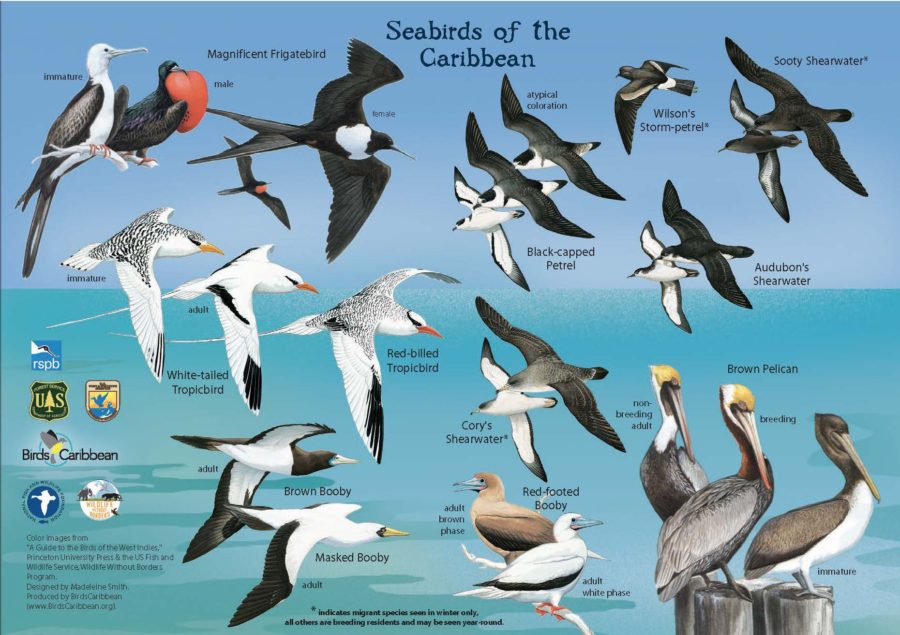
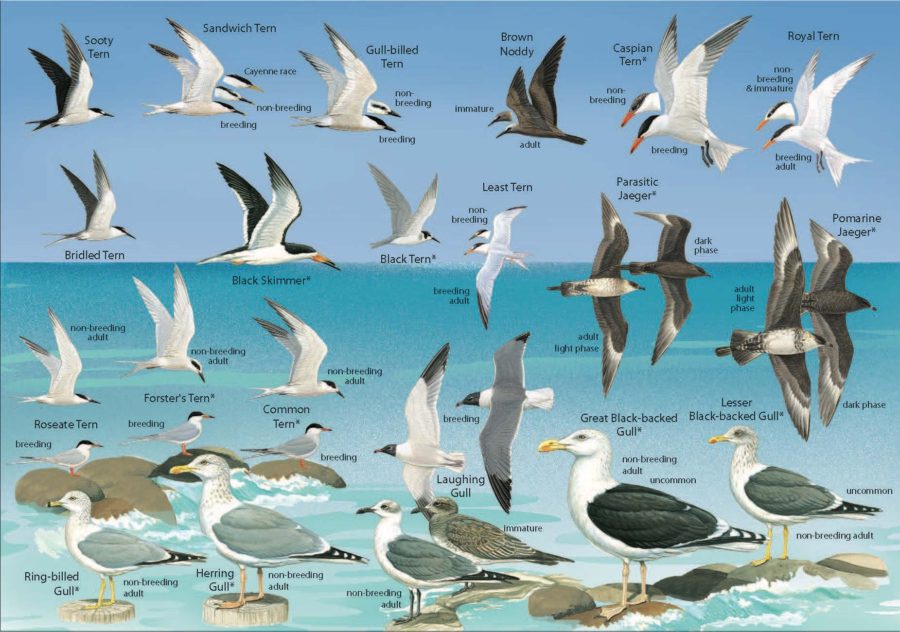 “Aves marinas de Puerto Rico”, by Carlos A. Delannoy Juliá. This book provides written accounts for all 16 seabird species present in Puerto Rico. In Spanish. This book is available for free on Sea Grant Puerto Rico’s website. Please contact Lisa Sorenson (lisa.sorenson@birdscaribbean.org) if you are interested in receiving hard copies of these materials.
“Aves marinas de Puerto Rico”, by Carlos A. Delannoy Juliá. This book provides written accounts for all 16 seabird species present in Puerto Rico. In Spanish. This book is available for free on Sea Grant Puerto Rico’s website. Please contact Lisa Sorenson (lisa.sorenson@birdscaribbean.org) if you are interested in receiving hard copies of these materials.
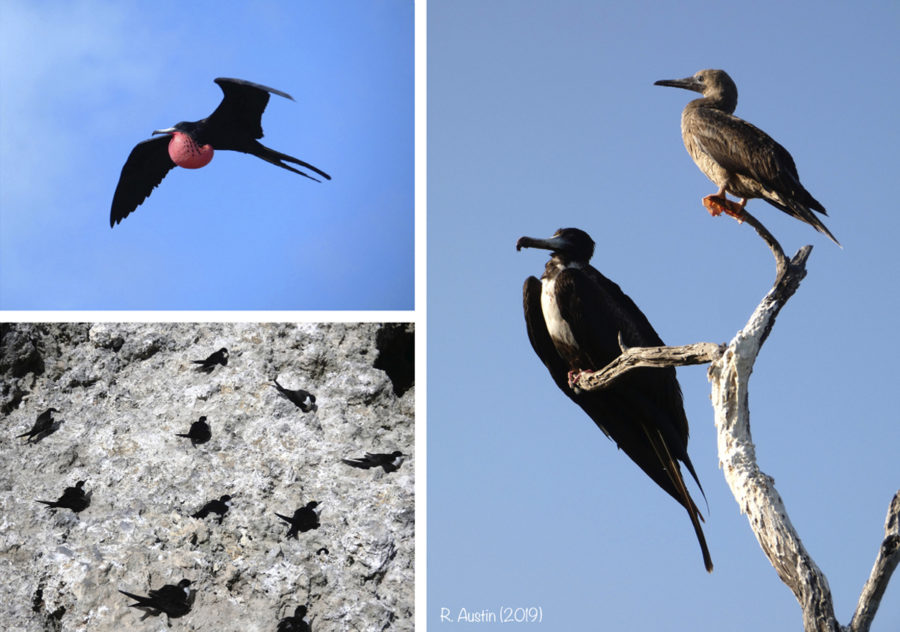
Merchandise
You can help support and spread the word about the 2023 Caribbean Seabird Census in style with a variety of beautifully designed products including a range of fantastic T-shirts available here. These feature the wonderful artwork from our Seabird Census 2023 graphic by Josmar Esteban Márquez and 40% of the profit goes towards supporting the census. Pick your favorite featured bird or just have all of them!
click on images to enlarge
For those in the Caribbean don’t forget that you can minimize transport pollution, reduce packaging waste and share shipping cost by bulk ordering of any merch with others on your island. Thanks in advance for supporting our efforts!

